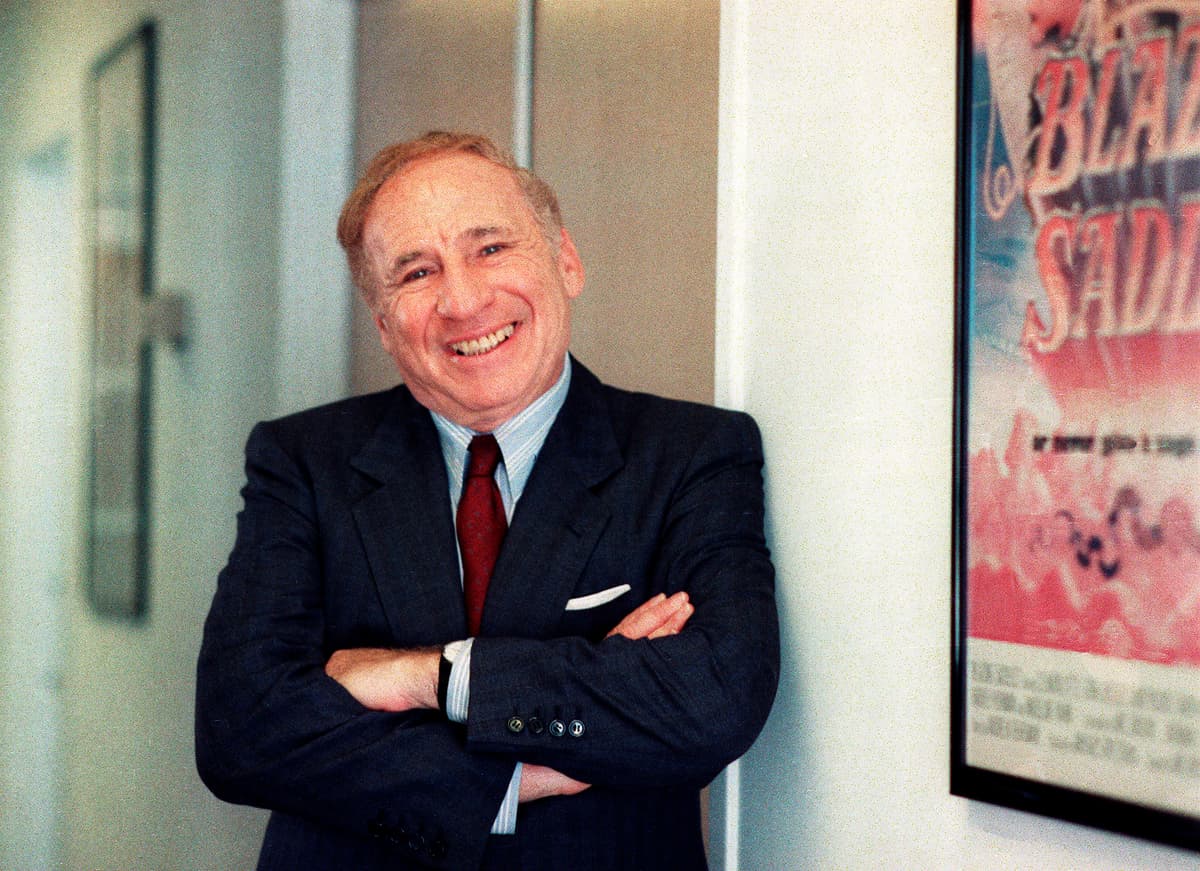With ‘Blazing Saddles’ Turning 50, It’s Worth Considering How Mel Brooks’s Farce Has Fared Through Changing Times
Not only has the picture been accused of racist intent, it’s also been deemed ‘woke’ and a paragon of postmodernism. Regardless, one thing is certain: ‘Blazing Saddles’ isn’t a racist movie.

The story of why Richard Pryor didn’t play the role of Black Bart in “Blazing Saddles” (1974) has been rendered shopworn through many retellings, but it bears mentioning on the occasion of the film’s 50th anniversary. Notwithstanding his role as a scriptwriter for the film, Pryor was deemed by Warner Brothers as too volatile a risk: His drug use and erratic behavior made him uninsurable. Director Mel Brooks begged the front office for Pryor’s inclusion, but to no avail: A stage and television actor, Cleavon Little, took on the role.
For that we should be grateful. Watching “Blazing Saddles,” which is being re-released in selected theaters nationwide in recognition of the picture’s anniversary, Little not only seems the handsomest man ever to alight on the silver screen, but the canniest provocateur in a film rife with provocations. Is there a moment in which Little doesn’t grace the proceedings with silkiness and composure? He may have lucked into the part, but that stroke of luck guaranteed him a place in the comedy firmament.
Fifty years is a long time, and it’s worth considering how Mr. Brooks’s farce has fared through changes in popular taste and political import. At the time of its initial release, the New Yorker found it “chaotic” and the Times thought it “terribly tiring,” a characteristic echoed by New York magazine in its estimation of the film’s comedy as having been “beaten into the ground.” Audiences proved more amenable to “Blazing Saddles,” making it among the most profitable Westerns to come out of Hollywood. That’s right: a most profitable Western.
More recently, the picture was at the center of the culture wars. Harrumphing was prompted when HBO Max hired an academic to reassure 21st-century viewers about the film’s “real, and much more enlightened perspective” on race relations. Our entertainment overlords couldn’t, it seems, unleash Mr. Brooks’s rebarbative artifact without the requisite tut-tut-tut. It’s as if the film didn’t announce its satiric intentions from the first whiplash crack of the title song.
Then again, perhaps a movie as lacking in subtlety as “Blazing Saddles” is too subtle for audiences weaned on over-intellectualized groupthink: Not only has the picture been accused of racist intent, it’s also been deemed “woke” and a paragon of postmodernism. Mr. Brooks has gone on record bemoaning political correctness — he told Entertainment Weekly that it was “the death of comedy.” Still, there’s one thing as certain as death, taxes, and the consequences of a steady diet of beans: “Blazing Saddles” isn’t a racist movie.
It is, of course, thunderingly anti-racist in intent and actuality. If Mr. Brooks and his screenwriters — not only the director and Pryor, but Andrew Bergman, Norman Steiner, and Alan Uger — didn’t put the kitchen sink into the script, they made up for it with an excess of shtick, movie in-jokes, anachronisms, and, yes, impolite terminology. Pryor and Little insisted the racial epithets stay the course, knowing full well that whatever satiric teeth “Blazing Saddles” possessed was dependent on them.
As for Mr. Brooks as auteur: The center does not hold, and, notwithstanding the efforts of Little, Gene Wilder, a delicious Madeline Kahn, and a game Slim Pickens, the picture rides less on comic presence than on jokes, jokes, jokes. As such, it’s a wildly hit-and-miss affair that benefits from being seen with an audience primed for laughter. Look for big reactions from the infamous campfire scene, Alex Karras’s character Mongo slugging a horse, and Little holding himself hostage by reclaiming and, by fiat, demolishing racial stereotypes.
In the end “Young Frankenstein” (1974) is Mr. Brooks’s most cinematic success, “The Producers” (1968) his most personal film, and the Two Thousand Year Old Man his finest creation. As for “Blazing Saddles”: It has proven impervious to the cavils of any film critic eager to hang on to his phony-baloney job.

